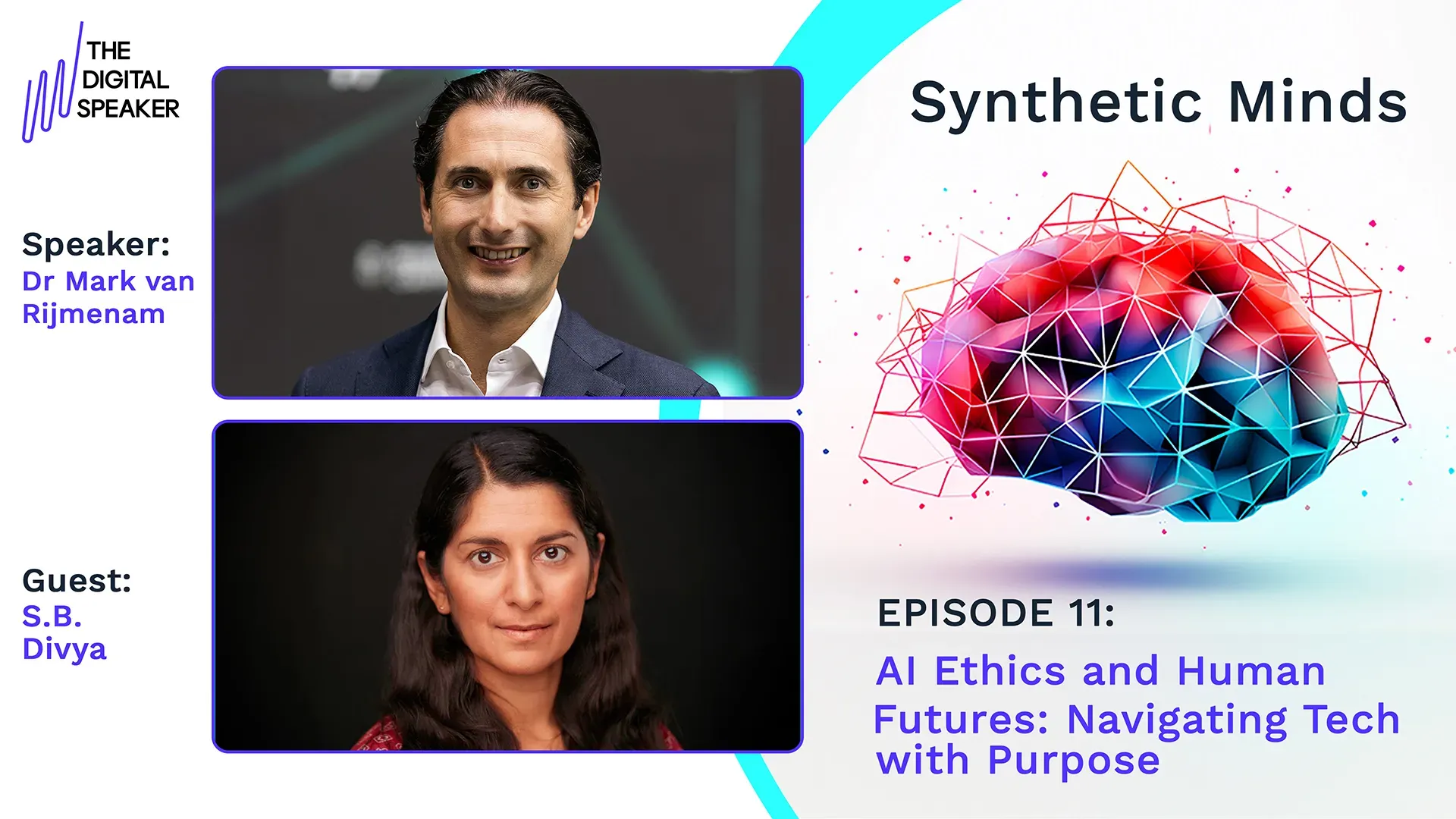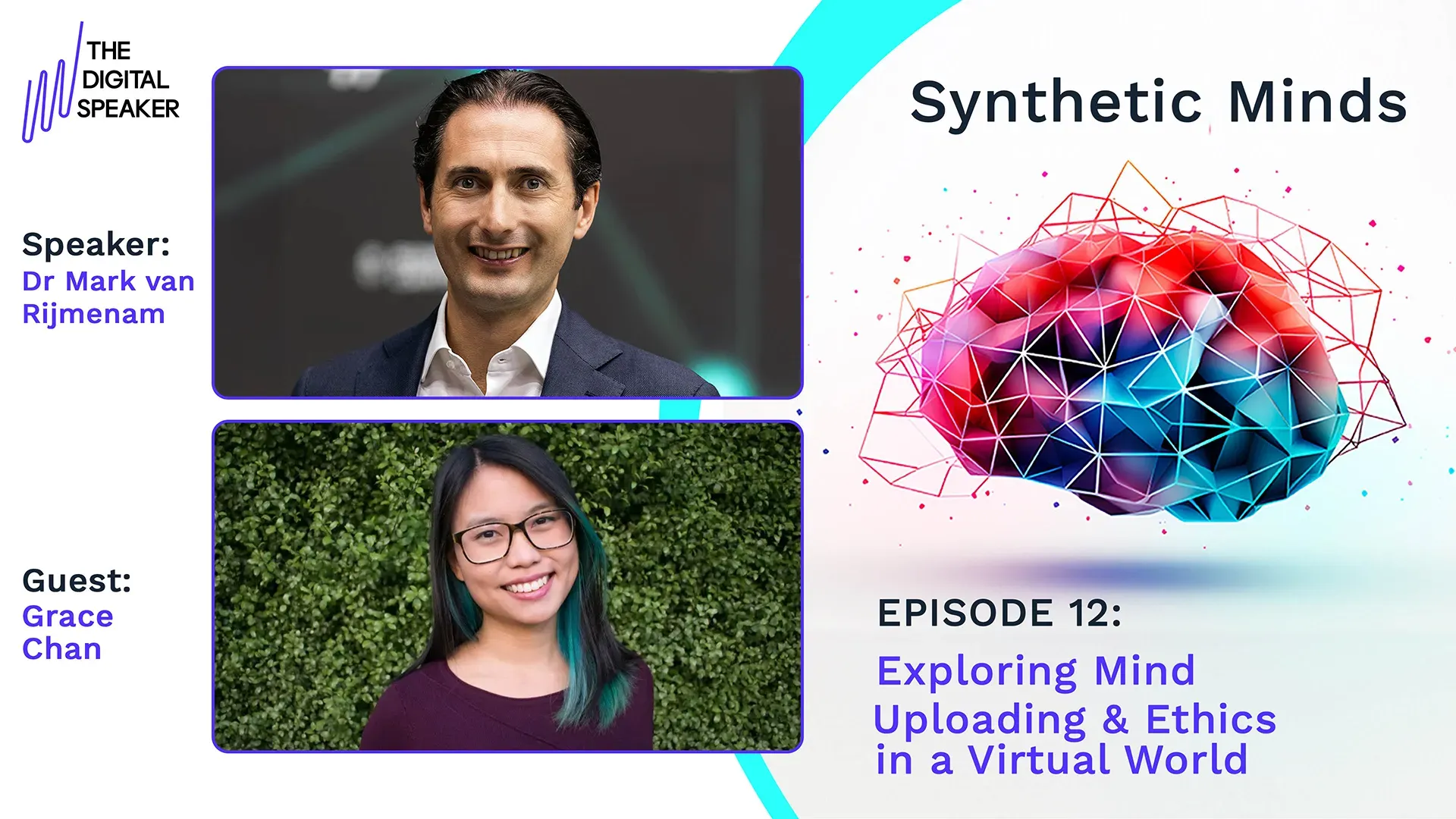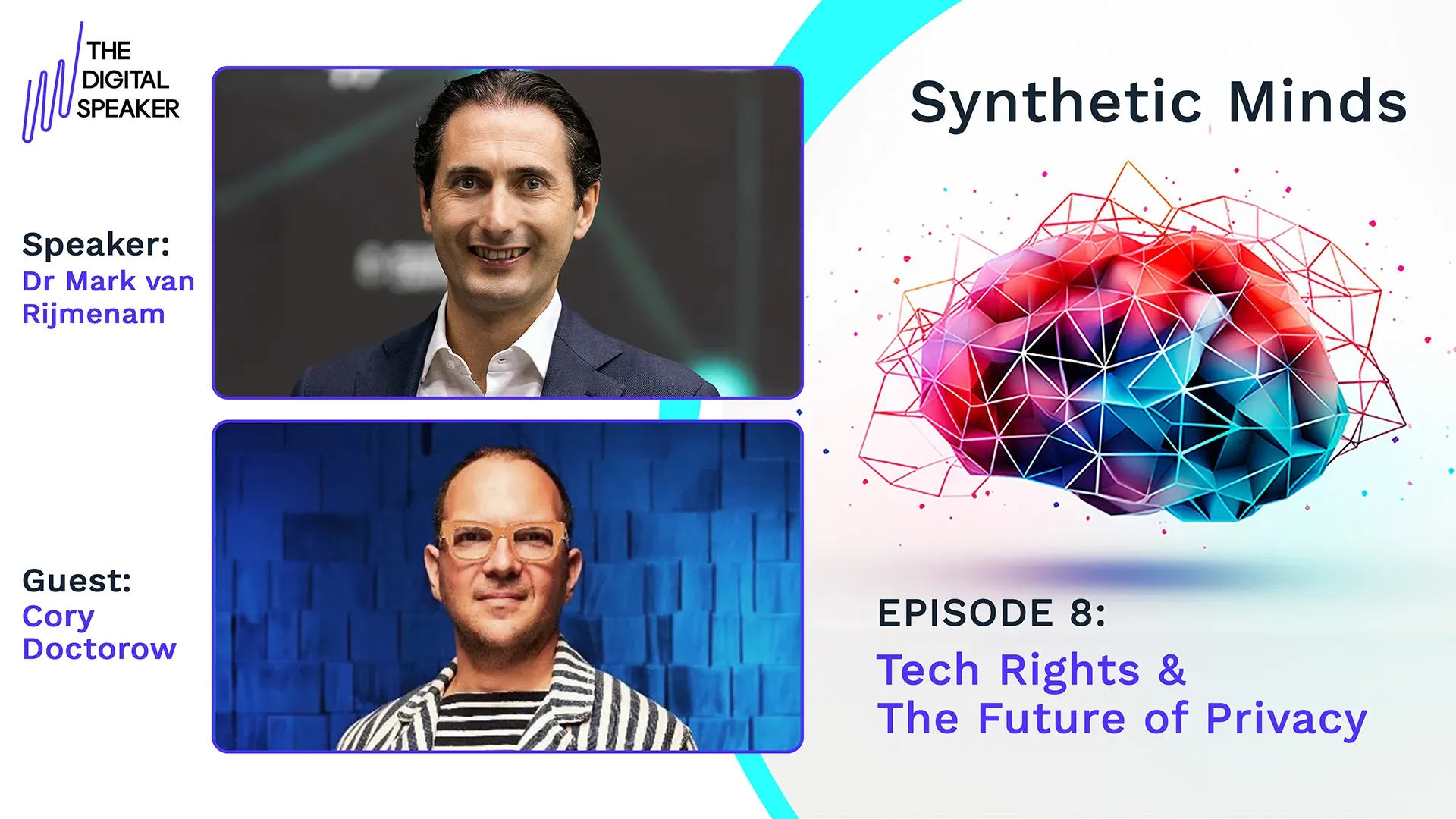AI Ethics and Human Futures: Navigating Tech with Purpose with S.B. Divya – Synthetic Minds EP11

In a world where technological innovation constantly reshapes our society, speculative fiction becomes more than just entertainment; it is a critical tool for thinking through the implications of these changes. In this episode of the Synthetic Minds podcast, S.B. Divya, a renowned speculative fiction author and AI researcher, joins us to explore the intersections between technology, ethics, and humanity.
Divya’s works like Machinehood and Runtime delve into the ethical dimensions of artificial intelligence (AI), automation, and how humans adapt to an increasingly technological world. Her insights give business leaders crucial strategies for understanding and preparing for the future.
Divya emphasizes the role of speculative fiction in imagining scenarios where technology has evolved past today’s norms. These thought experiments aren’t just for entertainment—they offer practical frameworks for organizations to better understand the opportunities and challenges emerging technologies might present.
The Power of Speculative Fiction in Shaping Futures
One of the key themes in the conversation with Divya was how speculative fiction is not merely an exercise in imagination but a tool for anticipating and exploring potential futures. Speculative fiction allows us to imagine new technologies, social systems, and even entire world orders that may arise from the innovations we are working on today. For business leaders, this genre offers a unique lens through which to examine the world as it could be, providing a sandbox to consider not just the technological innovations but the social, ethical, and political impacts of them.
For example, Divya’s novel Machinehood raises critical questions about the role of AI in everyday life, exploring a world where automation and biotechnology have drastically altered human identity, labor, and rights. Through such narratives, organizations can experiment with the unknown, envision different scenarios, and rehearse for future disruptions. The lessons drawn from these speculative worlds are not simply fiction but strategic tools for preparing for technological shifts.
Organizations can benefit from adopting speculative approaches to strategy and innovation. By thinking in terms of "what if" scenarios, businesses can better prepare for a range of possible futures. This kind of thinking encourages flexibility and adaptability—key traits for thriving in a constantly evolving world with emerging technologies. It allows businesses to consider what is probable and possible, helping them to remain agile and responsive to changes.
Navigating the Ethical Implications of AI and Automation
A significant focus of our discussion was the ethical implications of AI and automation, particularly as these technologies play more significant roles in decision-making processes across various industries. Divya's work often explores the intersection of AI and ethics, making her well-placed to discuss how organizations should be thinking about the societal impact of their technologies.
As AI systems become more integral to everything from business operations to healthcare, their ethical challenges become harder to ignore. Divya stresses that while AI offers tremendous potential for efficiency and innovation, organizations must cautiously approach its development and implementation, ensuring that these systems align with human values and societal goals. This is particularly important when considering the risks of bias, surveillance, and loss of autonomy that AI systems may introduce.
In Machinehood, Divya imagines a future where humans and AI co-exist but grapple with issues like surveillance, the commodification of human labor, and the struggle for autonomy in a highly automated world. These speculative scenarios mirror real-world concerns, offering business leaders a way to think critically about the ethical dimensions of their technologies.
For organizations, addressing these ethical concerns is not just about avoiding adverse outcomes but about building trust with consumers, employees, and stakeholders. Companies that prioritize ethical considerations in their AI development will likely gain a competitive edge, as consumers increasingly demand transparency and fairness in the technologies they interact with. The conversation highlights the importance of engaging in ethical foresight and creating governance structures to manage the risks associated with AI and automation.
Applying Futures Thinking to Organizational Strategy
Another key takeaway from our discussion with Divya was the importance of futures thinking in shaping organizational strategy. Futures thinking, a discipline that involves imagining various possible futures and planning accordingly, is crucial for companies looking to stay ahead in an increasingly complex and uncertain world.
Divya emphasizes the value of foresight, anticipating technological advancements and understanding the social and ethical contexts in which those technologies will operate. For instance, as AI systems become more capable, organizations must navigate the technical challenges of implementation and the broader societal impacts of these systems. Futures thinking allows organizations to map out different scenarios and develop robust strategies across multiple possible futures.
One example Divya discussed is the potential of AI to disrupt industries in ways we can't fully predict. While automation may bring efficiency gains, it could also lead to significant shifts in the labor market, with entire categories of jobs becoming obsolete. Futures thinking helps organizations consider how these changes might play out, discover any unintended consequences of their actions and how they can position themselves to adapt. It encourages companies to think beyond short-term gains and consider the long-term implications of their innovations.
The Intersection of Fiction and Reality
The conversation with S.B. Divya underscored the decisive role that speculative fiction can play in shaping organizational strategy and thinking about the future. Her work provides valuable insights into how technology, particularly AI, will shape the future of work, ethics, and human identity.
By embracing the lessons of speculative fiction, organizations can better navigate the uncertainties of the future, ensuring that they are prepared for technological change and aligned with the ethical and social challenges that come with it.
Business leaders should take note of the importance of speculative thinking and futures planning in preparing for the next wave of technological disruption. By considering a range of possible futures, organizations can build strategies that are flexible, adaptive, and ready for whatever the future holds. Divya’s narratives offer more than just entertainment—they are tools for critical thinking, ethical reflection, and strategic foresight.
In a world where AI and automation are rapidly transforming industries, the ability to think creatively about the future is more important than ever. Organizations that can harness the power of speculative fiction to explore new possibilities will be better equipped to navigate the challenges and opportunities of the 21st century.
About S.B. Divya
S.B. Divya (she/any) is a lover of science, math, fiction, and the Oxford comma. She is a Nebula, Hugo, Ignyte, and Locus Award finalist and the author of novels Runtime and Machinehood. Her short stories have appeared in numerous magazines and anthologies, and she is a former editor of Escape Pod, the weekly science fiction podcast. Divya holds degrees in Computational Neuroscience and Signal Processing. Find out more at www.sbdivya.com.















